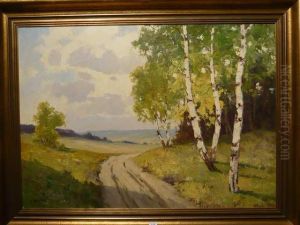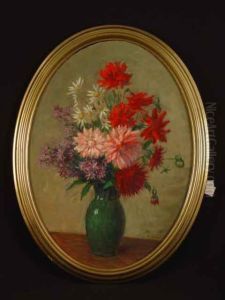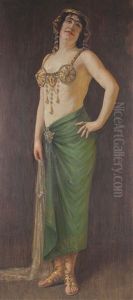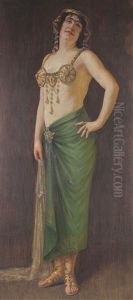Paul Huber Paintings
Paul Huber was a Swiss composer whose works contributed significantly to the music landscape of the 20th century. Born on December 28, 1918, in Sissach, Switzerland, Huber's musical journey began at a young age, influenced by the rich cultural heritage of his homeland. He pursued his musical education at the Conservatory of Basel, where he honed his skills in composition and conducting. Throughout his career, Huber was known for his deep connection to traditional Swiss music, which he often incorporated into his compositions, blending classical forms with folk elements to create a unique and recognizable style.
Huber's oeuvre spans a wide range of musical genres, including symphonic works, chamber music, choral compositions, and pieces for solo instruments. One of his most notable contributions to the music world is his series of Masses, which are highly regarded for their emotional depth and technical mastery. His commitment to church music was profound, and he composed numerous pieces for liturgical use, reflecting his deep spiritual beliefs and his desire to enrich the repertoire of church music with contemporary expressions.
Throughout his career, Paul Huber received several accolades for his contributions to music, including awards from various music societies and cultural institutions. His works have been performed by orchestras and ensembles around the world, testament to his enduring legacy and the universal appeal of his compositions. Despite the international recognition, Huber remained closely connected to his Swiss roots, often drawing inspiration from the landscapes and folk traditions of his homeland.
Paul Huber passed away on October 26, 2001, leaving behind a rich catalogue of compositions that continue to be celebrated and performed. His music not only reflects his personal journey and the musical traditions of Switzerland but also contributes to the broader tapestry of 20th-century classical music. Huber's legacy is preserved through recordings, performances, and academic studies, ensuring that his contributions to the world of music are recognized and appreciated by future generations.




